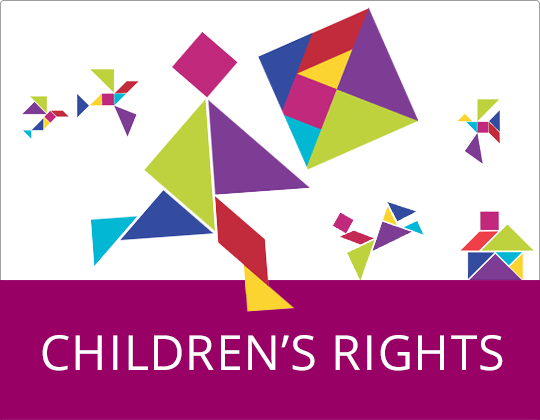For the 9th consecutive year, the Council of Europe is supporting the Safer Internet Day Campaign and is joining forces with numerous stakeholders to work together for a better and safer internet for all, and especially for children and young people.
Safeguarding and promoting the rights of the child in the digital environment and keeping them safe online are at the heart of the Council of Europe’s work. The right to access to and safe use of technologies remains one of the key priorities in the Council of Europe’s current Strategy for the Rights of the Child (2022–2027) and is addressed through its standard-setting, monitoring and co-operation activities.
The Council of Europe is strongly committed to fighting sexual exploitation and sexual abuse of children online, through the Council of Europe Convention on the Protection of Children from Sexual Exploitation and Sexual Abuse (Lanzarote Convention), as well as bilateral and regional projects. State Parties to this Convention commit to criminalise any type of sexual exploitation and sexual abuse against children, online and offline, and the fact of knowingly accessing online child sexual abuse material.
The 2nd monitoring round of the Committee of the Parties to the Lanzarote Convention (Lanzarote Committee) focused on the Protection of children against sexual exploitation and sexual abuse facilitated by information and communication technologies (ICTs) – Addressing the challenges raised by child self-generated sexual images and/or videos. The corresponding Implementation Report adopted in March 2022 contains specific recommendations and promising practices which guide state Parties in better aligning their legislative and policy framework and practice with the requirements of the Lanzarote Convention, thus enhancing effective protection of children against ICTs facilitated sexual abuse. To raise awareness on the key findings of the Implementation Report, comprehensive thematic and country factsheets were prepared and published in 2023.
This year the Council of Europe celebrates the Safer Internet Day by continuing to highlight and disseminate these specific recommendations and promising practices of the Lanzarote Committee as widely as possible, and holding a national conference in Rabat, Morocco to discuss challenges linked to artificial intelligence and emerging threats.
Furthermore, the 2024 edition of the Council of Europe annual awareness-raising Day on the Protection of Children against Sexual Exploitation and Sexual Abuse (18 November) will focus on Protecting children from sexual exploitation and sexual abuse in the context of emerging technologies (including AI and XR).
Following the European Commission’s proposal for a temporary derogation to provisions in the e-Privacy Directive to allow for the processing of personal and other data for the purpose of combating child sexual abuse online, the Lanzarote Committee commissioned the preparation of the Report “Respecting human rights and the rule of law when using automated technology to detect online child sexual exploitation and abuse”. This report, prepared by independent experts, provides in-depth expertise on appropriate solutions to reconcile various human rights at stake while integrating safeguards in actions carried out in the public interest. As the EU proposed Regulation to find a lasting solution once the temporary derogation expires is still being negotiated, this report remains very relevant.
Through its country specific project "Preventing and protecting children from violence, including in the digital environment in the Republic of Moldova” (Phase III), and a new regional project “End Online Child Sexual Exploitation and Abuse@Europe Plus (EndOCSEA@Europe+)" focusing on Georgia, Montenegro and the Republic of Moldova, the Council of Europe is conducting a series of actions to raise awareness on the risks of online child sexual exploitation and abuse, and promoting digital literacy and safe use of internet for children in these countries.
Last but not least, the Council of Europe continues to translate and disseminate as widely as possible some of its latest materials and tools for policy makers, professionals working for and with children, parents, caregivers and children in order to raise awareness on children’s rights in the digital environment and online safety.




